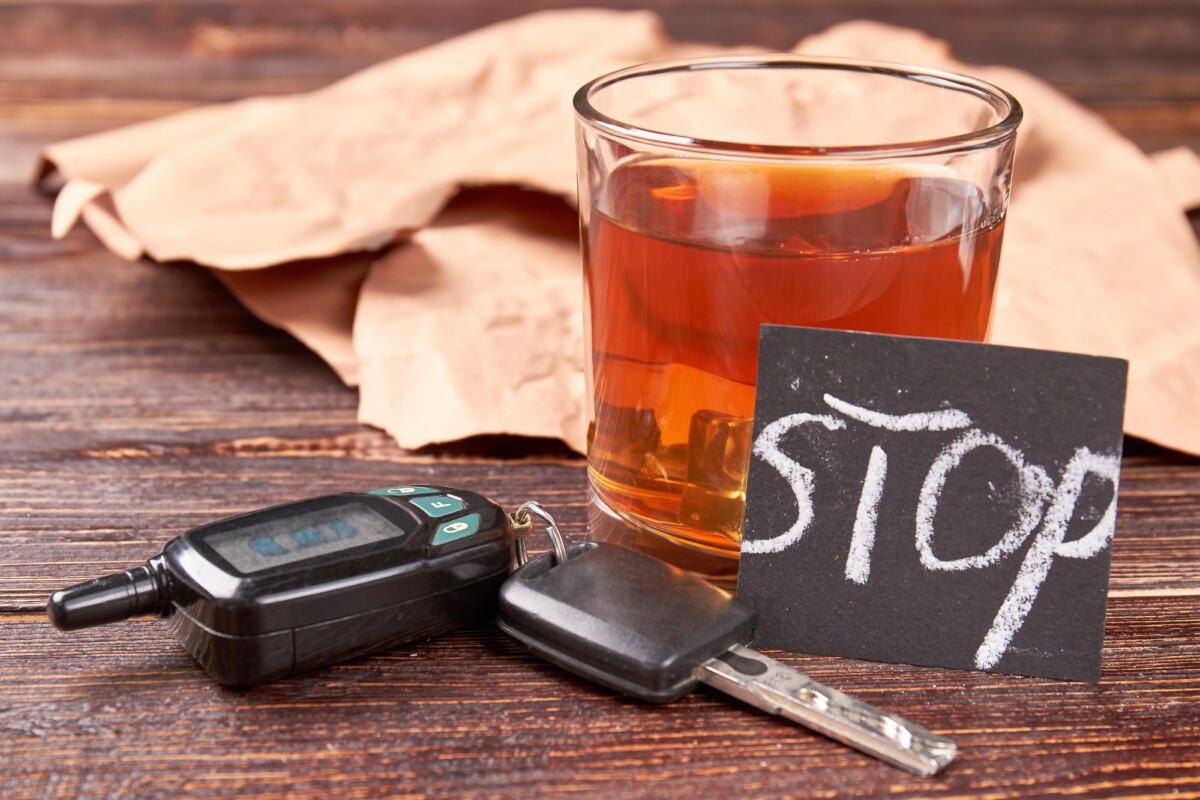Ohio Legal Alcohol Limit Career Connector

Ohio’s legal alcohol limits play a pivotal role in defining what constitutes driving under the influence (DUI), also known as operating a vehicle impaired (OVI) in the state. For legal professionals, understanding these limits is fundamental to effectively defending clients, advising employers, and navigating the complexities of DUI law. Moreover, Ohio’s evolving DUI legal landscape offers diverse career paths and opportunities for attorneys specializing in this field.
This comprehensive article explores Ohio’s legal alcohol limits, the implications for drivers of different categories, and the career opportunities available in DUI law. It also highlights recruitment strategies for law firms seeking DUI defense attorneys and provides guidance for legal professionals aiming to build a career in this niche. For personalized assistance connecting lawyers and candidates, contact Legal Case Review or call 833-279-1850. You can also request a quote at Legal Case Review Quote Page.
Ohio’s Legal Alcohol Limits: An Overview
Ohio’s legal alcohol limits are defined by blood alcohol concentration (BAC) thresholds that vary based on the driver’s age and type of vehicle operated. These limits establish when a driver is legally considered impaired and subject to DUI/OVI charges.
Standard Legal BAC Limit for Adults
For drivers aged 21 and older, the legal BAC limit is 0.08%. This means that if a driver’s BAC is measured at 0.08% or higher, they are presumed legally impaired, regardless of whether their driving ability was visibly affected. This is known as a “per se” offense under Ohio law.
High BAC Limit
Ohio has a higher BAC threshold of 0.17% that triggers aggravated OVI charges. Drivers with BAC levels at or above 0.17% face enhanced penalties, including longer license suspensions, higher fines, and increased jail time.
BAC Limits for Commercial Drivers
Drivers operating commercial vehicles, including trucks and buses, are held to a stricter BAC limit of 0.04%. This lower threshold aligns with federal regulations and reflects the increased responsibility commercial drivers have for public safety.
Zero Tolerance for Underage Drivers
Ohio enforces a 0.02% BAC limit for drivers under the age of 21, effectively a zero-tolerance policy. Even a single drink can push an underage driver over this limit, leading to DUI charges with serious consequences.
How BAC is Measured and Legal Implications
Ohio law enforcement uses chemical tests such as breath, blood, or urine tests to determine BAC levels. The results of these tests are critical in DUI prosecutions.
-
Breath Tests: Breathalyzers estimate BAC by measuring alcohol concentration in exhaled air.
-
Blood Tests: Provide precise measurement of alcohol concentration in the bloodstream.
-
Urine Tests: Less commonly used but can indicate alcohol consumption.
If a driver refuses to submit to chemical testing, Ohio’s implied consent laws impose automatic license suspensions, separate from DUI penalties.
Penalties Based on BAC Levels and Offense History
Ohio’s DUI penalties vary depending on BAC level, prior offenses, and other aggravating factors such as causing injury or property damage.
| Offense Type | BAC Range | Penalties |
|---|---|---|
| First Offense | 0.08% – 0.169% | Fines up to $1,075, up to 6 months jail, license suspension up to 3 years, mandatory alcohol treatment |
| Aggravated OVI | 0.17% or higher | Higher fines, longer jail time, extended license suspension, ignition interlock device required |
| Underage OVI | 0.02% or higher | Misdemeanor charges, fines, license suspension, possible jail time |
| Commercial Driver OVI | 0.04% or higher | Similar to first offense but with stricter penalties, including disqualification from driving commercial vehicles |
Additional penalties may apply for repeat offenses, refusal to test, or DUI-related accidents.
Career Paths in Ohio DUI Law
The complexity and seriousness of DUI law in Ohio create a demand for specialized legal professionals. Career paths include:
1. DUI Defense Attorney
DUI defense attorneys represent clients charged with OVI offenses. Their role involves challenging evidence, negotiating plea deals, and advocating in court to minimize penalties or secure acquittals. Expertise in Ohio’s legal alcohol limits and scientific evidence is essential.
2. Prosecutor Specializing in DUI Cases
Prosecutors who specialize in DUI cases work to enforce Ohio’s drunk driving laws. They must understand the nuances of BAC testing, legal thresholds, and sentencing guidelines to effectively prosecute offenders.
3. Legal Consultant or Expert Witness
Some attorneys or scientists with expertise in BAC testing and DUI law serve as consultants or expert witnesses in trials, helping courts understand complex scientific evidence.
4. Compliance and Regulatory Roles
Legal professionals may work with government agencies or private companies to develop policies, compliance programs, or educational initiatives related to drunk driving prevention.
Opportunities and Demand for DUI Legal Professionals in Ohio
Ohio’s strict DUI laws and high enforcement rates create steady demand for skilled DUI legal professionals. Metropolitan areas such as Columbus (zip codes 43215, 43201), Cleveland (44113, 44114), and Cincinnati (45202, 45219) have particularly high case volumes, fueling job opportunities.
Law firms specializing in DUI defense often seek attorneys with trial experience, knowledge of forensic evidence, and strong negotiation skills. Similarly, prosecutors and public defenders require attorneys well-versed in Ohio’s legal alcohol limits and DUI statutes.
Effective Legal Recruitment Strategies for DUI Law Firms
Law firms aiming to build strong DUI defense teams in Ohio can adopt the following strategies:
1. Partner with Legal Career Facilitators
Collaborating with specialized legal career facilitators like Legal Case Review helps firms access a pool of qualified DUI attorneys. Facilitators pre-screen candidates for relevant experience and match them with suitable roles.
Contact us at 833-279-1850 to connect with top DUI legal talent in Ohio.
2. Highlight Specialized Expertise and Training
Emphasize opportunities for attorneys to develop expertise in Ohio’s DUI laws, including training on BAC testing, trial advocacy, and recent legislative changes.
3. Offer Competitive Compensation and Benefits
Attractive salary packages, bonuses, and benefits are crucial to attracting and retaining skilled DUI attorneys amid competitive demand.
4. Foster a Supportive Work Environment
Providing mentorship, manageable caseloads, and professional development opportunities improves retention and job satisfaction.
Building a Career in DUI Law: Tips for Attorneys
Attorneys interested in DUI law should consider the following to advance their careers:
-
Gain Specialized Knowledge: Understand Ohio’s legal alcohol limits, OVI statutes, and scientific evidence related to impairment.
-
Obtain Certifications: Pursue certifications in DUI defense or forensic toxicology.
-
Stay Current: Follow legislative developments, such as potential changes to BAC limits or DUI penalties.
-
Network: Join organizations like the Ohio Association of Criminal Defense Lawyers and attend DUI-focused seminars.
-
Seek Trial Experience: Develop courtroom skills by handling DUI cases and participating in mock trials.
For career guidance and job placement, visit Legal Case Review or call 833-279-1850.
Understanding Ohio’s legal alcohol limits is fundamental for legal professionals involved in DUI law. The state’s strict BAC thresholds and severe penalties create a challenging environment that demands skilled attorneys and knowledgeable prosecutors. For law firms, building strong DUI defense teams requires targeted recruitment strategies, including partnerships with legal career facilitators like Legal Case Review.
Whether you are a law firm seeking to hire or an attorney looking to advance your DUI law career, leveraging expert resources can make all the difference. Contact Legal Case Review or call 833-279-1850 today to explore opportunities and connect with top legal talent in Ohio.
Frequently Asked Questions (FAQs)


